Search Images
Browse Content (p. 1282)
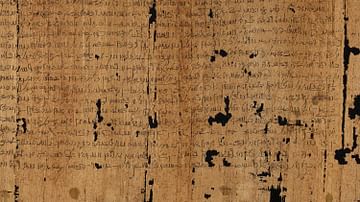
Image
Detail of Setna II
Demotic text of Setna II, 1st century CE, Aswan, Egypt.
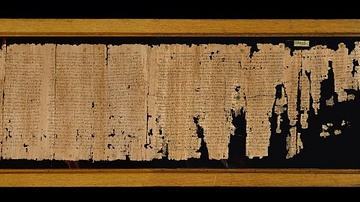
Image
Setna II
Demotic text of Tale of Setna II, 1st century CE, Aswan, Egypt.

Image
Japanese Imperial Regalia
An aritst's impression of three items from the unseen Japanese imperial regalia. In Japanese mythology the sun goddess Amaterasu gave her son Ninigi three gifts to aid his rule on earth: the Yasakani, a fabulous jewel (or pearls or magatama...
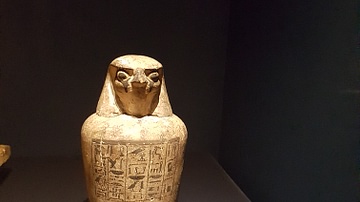
Image
Canopic Jar
Canopic Jar, 22nd Dynasty, about 945-715 BCE. Provenance unknown. The British Museum, (photo taken at The Powerhouse Museum, Sydney Australia)
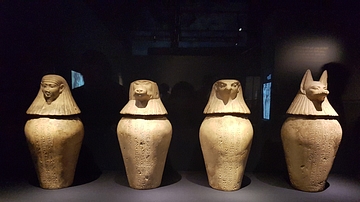
Image
Canopic Jars Of Djedbastetiuefankh
Canopic Jars Of Djedbastetiuefankh. Dynasty, about 380-343 BCE. Hawara, Egypt Limestone. Once removed from the chest and abdomen, the organs were embalmed separately and placed in canopic jars. There were usually four organ bundles, each...
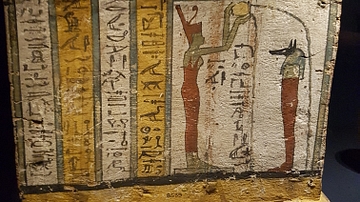
Image
Canopic Box Of Nesaarud
Canopic Box Of Nesaarud. 25th-early 26th Dynasties. (680-600 BCE). Probably from Thebes, Egypt. From the Middle Kingdom onwards (about 2040-1650 BCE), canopic jars were sometimes stored in boxes. Here, the Sons of Horus are depicted on each...
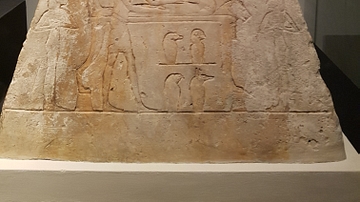
Image
Pyramidion of Wedjahor
Pyramidion of Wedjahor Dynasty, 664-525 BCE. Probably from Abydos, Egypt. (Made from Limestone). The pyramid shape used for some famous royal tombs was also used for private funerary structures. They were usually built in mud brick and topped...
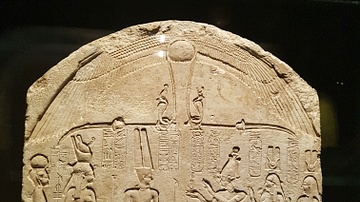
Image
Stela Showing Amun-Ra, Mut & Khonsu
Stela Showing Amun-Ra, Mut & Khonsu Period, about 141-116 BCE. Xois, Egypt. Pharaoh Ptolemy VIII (170-116 BCE) is shown making an offering of Maat (a symbol of truth and justice) to the divine family Amun-Ra, Mut & Khonsu. He is followed...
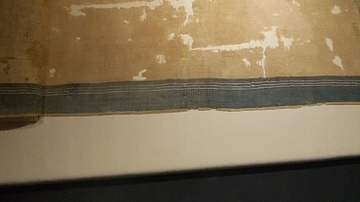
Image
Egyptian Linen
A portion of Egyptian linen. Linen was the most common fabric used by embalmers to wrap the body, often in vast quantities. The woven blue bands on this piece suggest that it once formed part of a garment. New Kingdom to Late Period, (about...
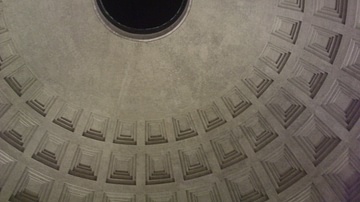
Image
Hole in the Top of the Pantheon
The famous hole in the dome of the Pantheon, Rome. Built by Emperor Hadrian, c.125 CE, to honor all the gods in the Roman Empire. Later consecrated as a Christian Church under Constantine the Great.